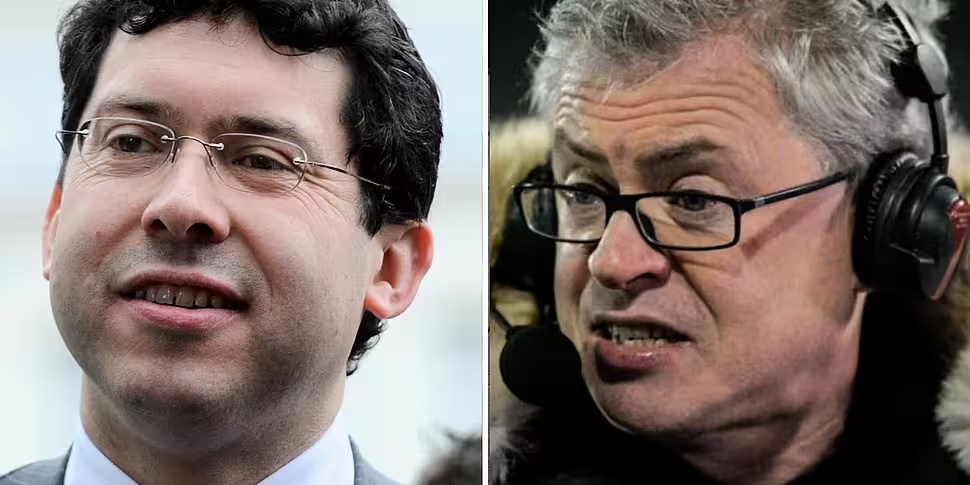Joe Brolly cannot “seamlessly move” from making sports analyses to “actually attacking serious people with serious points”, according to Senator Ronan Mullen.
Barrister and football analyst Joe Brolly told The Hard Shoulder last week that recent protests outside the Dáil is a good example of why hate crime legislation needs to be passed.
He also noted that Senators such as Ronan Mullen and Sharon Keegan are the most “fervent” against the legislation, and “there’s a reason for that”.
He also said he doesn’t believe “for a second” these Senators have “legitimate concerns” about free speech.
Speaking on The Hard Shoulder today, Mr Mullen said Mr Brolly told “an orchard of lies on the basis of using one seed of truth”.
“This is somebody attacking other people’s reputations,” he said.
“Joe Brolly is known for being a sports pundit - There's an exaggeration style going in, and people can take them or leave them.
“But when you veer into the area of political commentary and serious analysis of social problems, you have a duty not to attack people's reputations unless you produce evidence.”
'There was a clear suggestion that we were insincere'
Mr Mullen said Mr Brolly attempted to connect the “small but regrettable” protest outside Leinster House to his and others’ opposition to hate speech legislation.
“There was a clear suggestion that we were insincere whenever we spoke about transgender controversies and the danger of the hate speech legislation for free speech,” he said.
“He was suggesting that we were in it for the money... that there some kind of shadowy source of money in the background.”
Mr Mullen said these supposed accusations are not “acceptable in political debate”.
“You can't ask questions like that unless there's somebody there to give an answer,” he said.
“Joe Brolly can't move seamlessly from the area of kind of making whatever claim he wants in the sporting arena to actually attacking serious people with serious points.”
Mr Mullen has previously said hate speech legislation are “destined to have a chilling effect on free speech”.
Listen back here:









